Impact of Motivation and Hygiene Factors on Employee Performance
VerifiedAdded on 2022/10/18
|16
|1138
|18
Presentation
AI Summary
This presentation explores the impact of motivation and hygiene factors on employee performance within the Tanzanian government. The research identifies key motivators, such as recognition and opportunities for growth, and hygiene factors, including fair wages and positive work environments, which significantly influence job satisfaction and overall productivity. The study investigates the correlation between these factors and employee commitment, innovation, and the achievement of both individual and organizational goals. The research methodology employs a mixed-methods approach, utilizing both qualitative and quantitative data collection techniques, including interviews and case studies, to provide a comprehensive analysis. The presentation highlights the significance of the research in informing policy development and offers recommendations for strategies to enhance employee motivation and achieve sustainable development within the Tanzanian public sector. The study acknowledges limitations, focusing primarily on the Ministry of Water and its effects on performance, while also suggesting future research directions to broaden the scope and generalizability of the findings.
1 out of 16
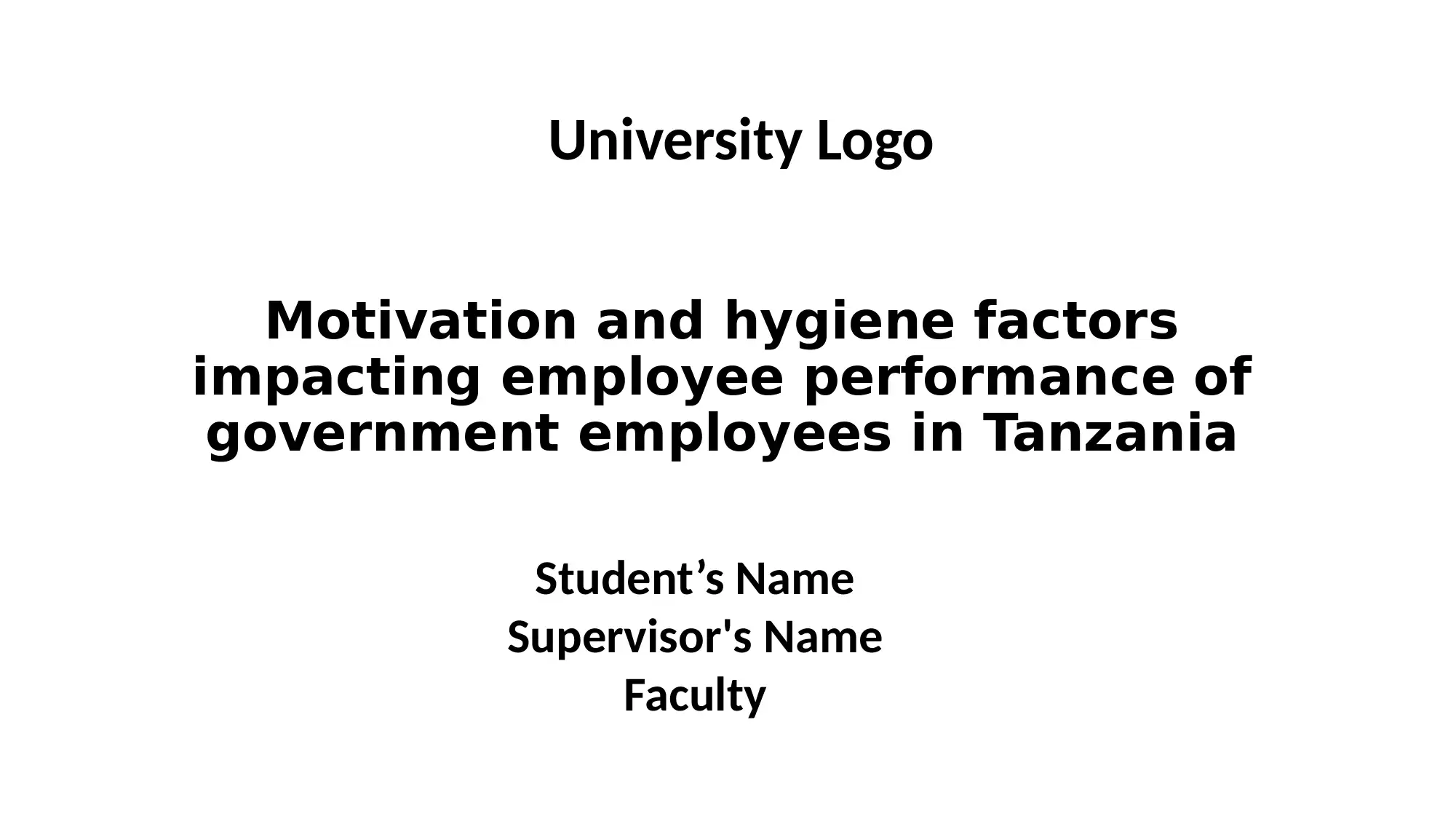
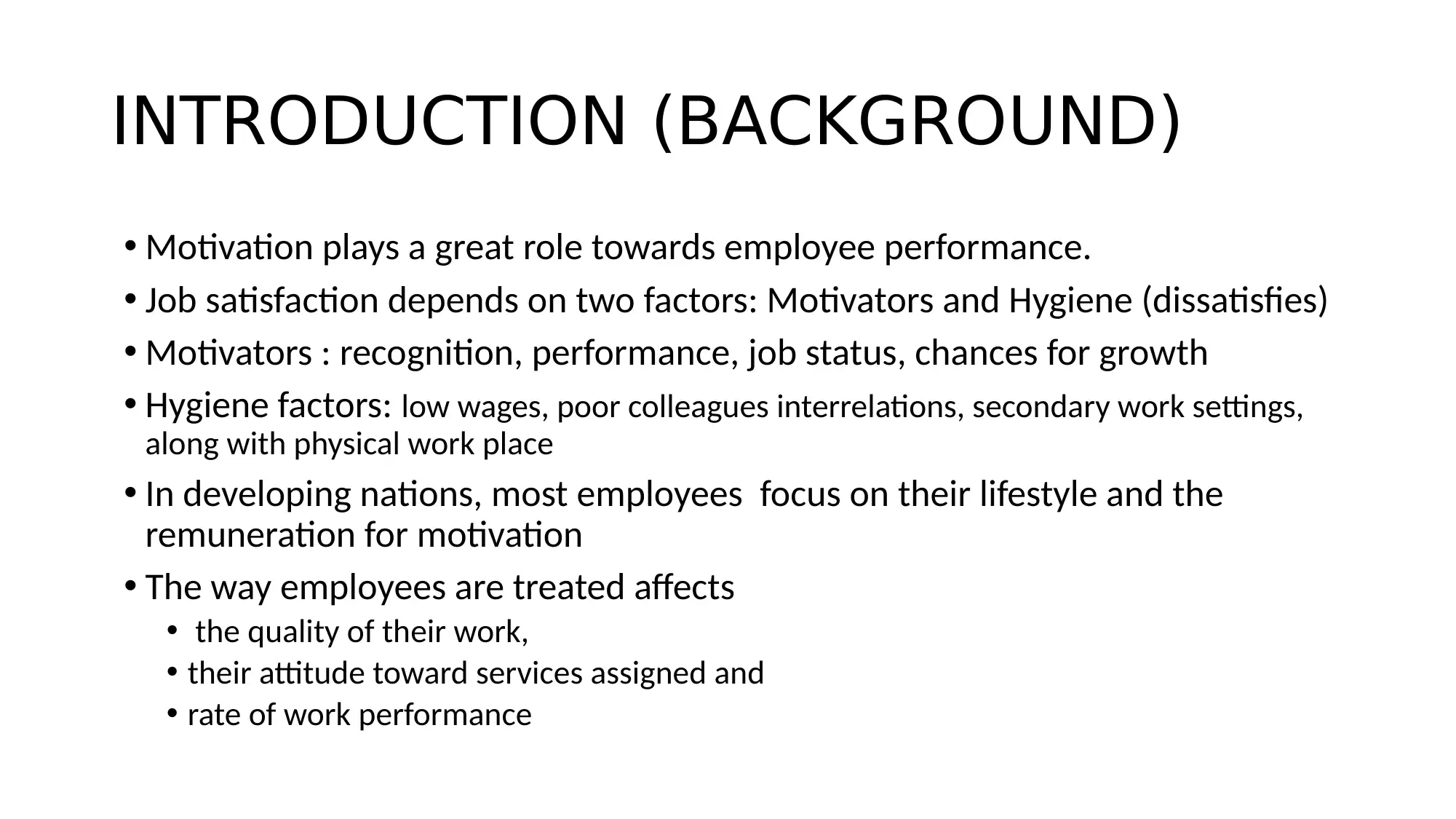
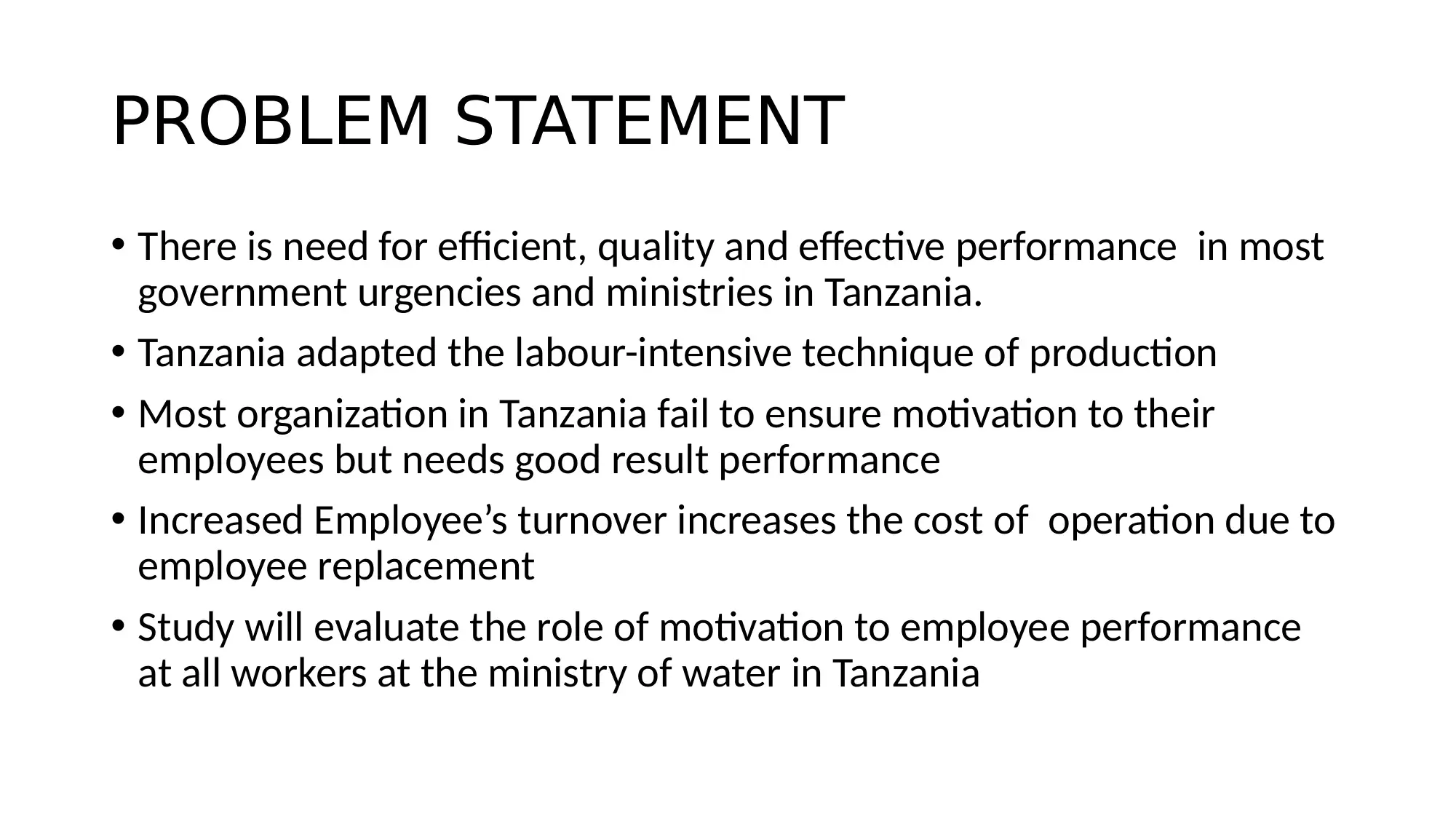

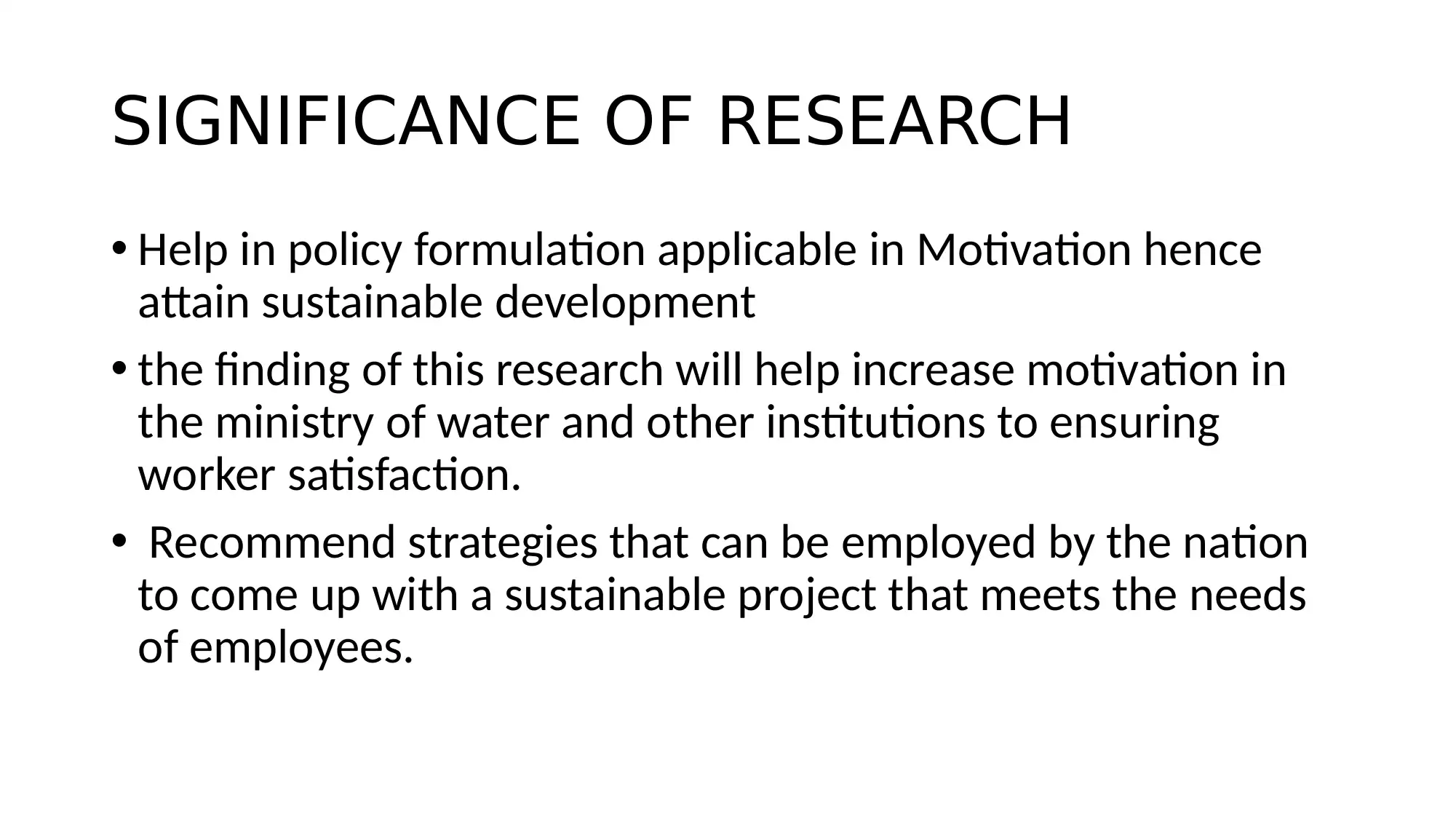
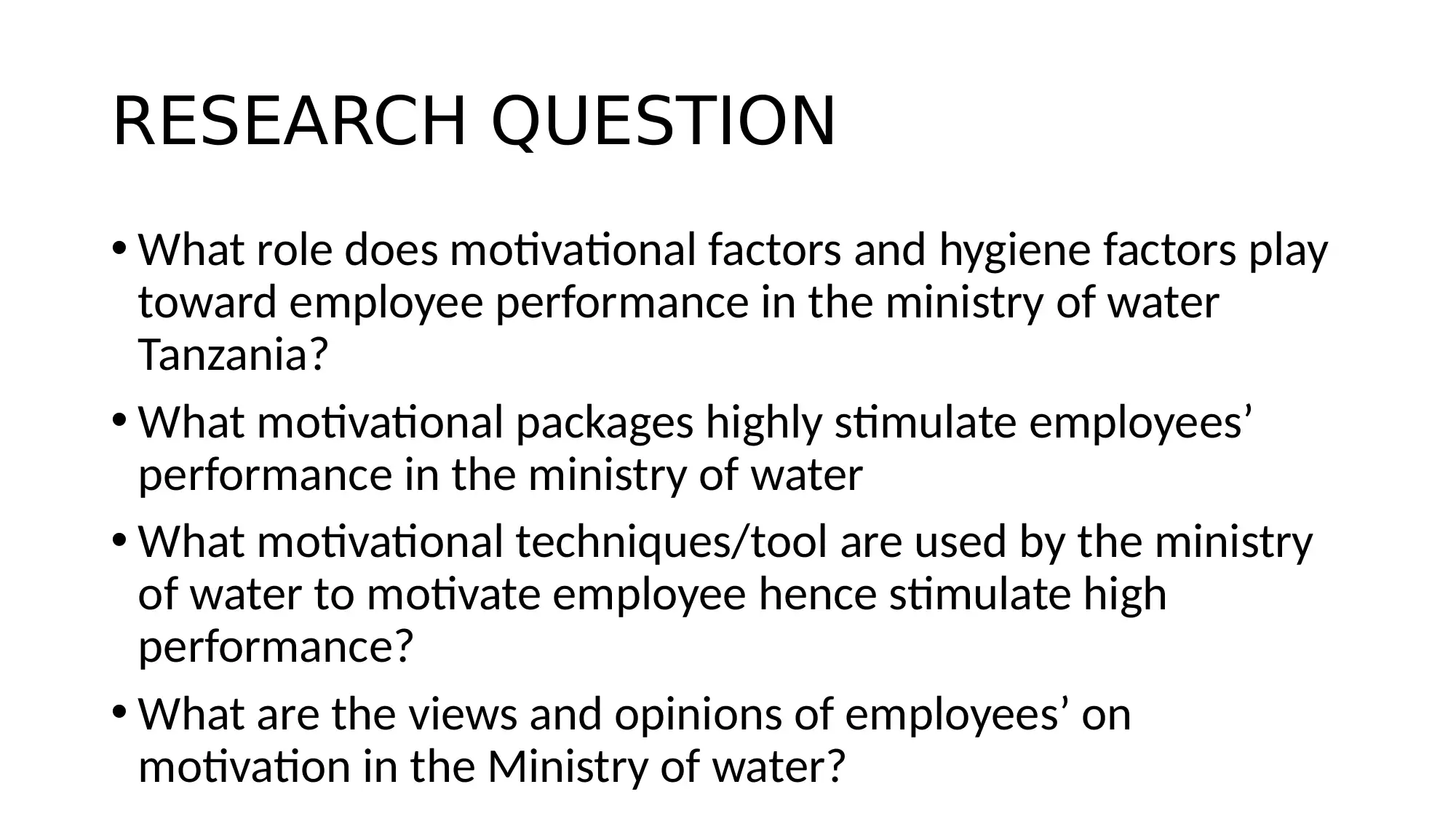
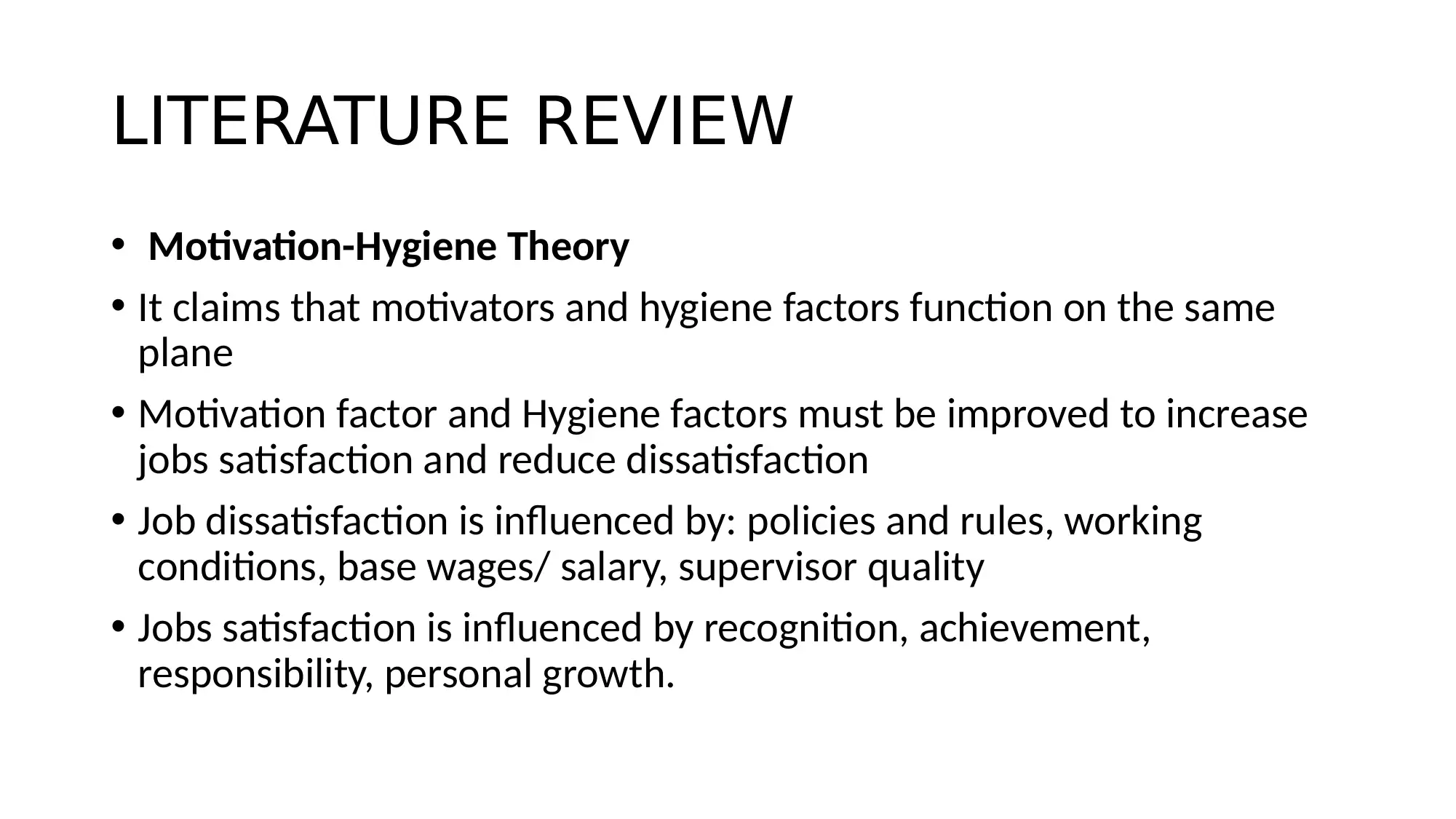
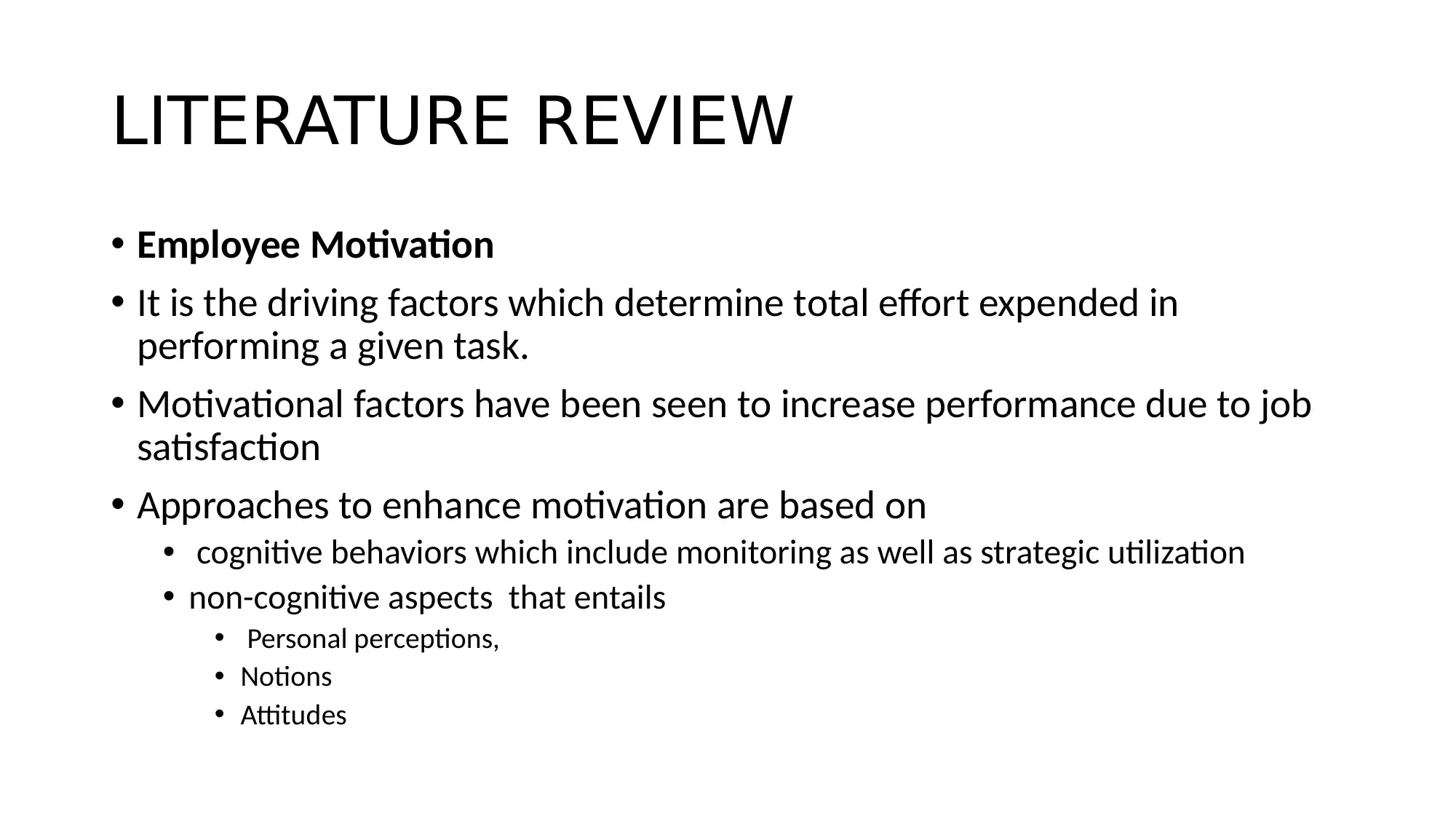
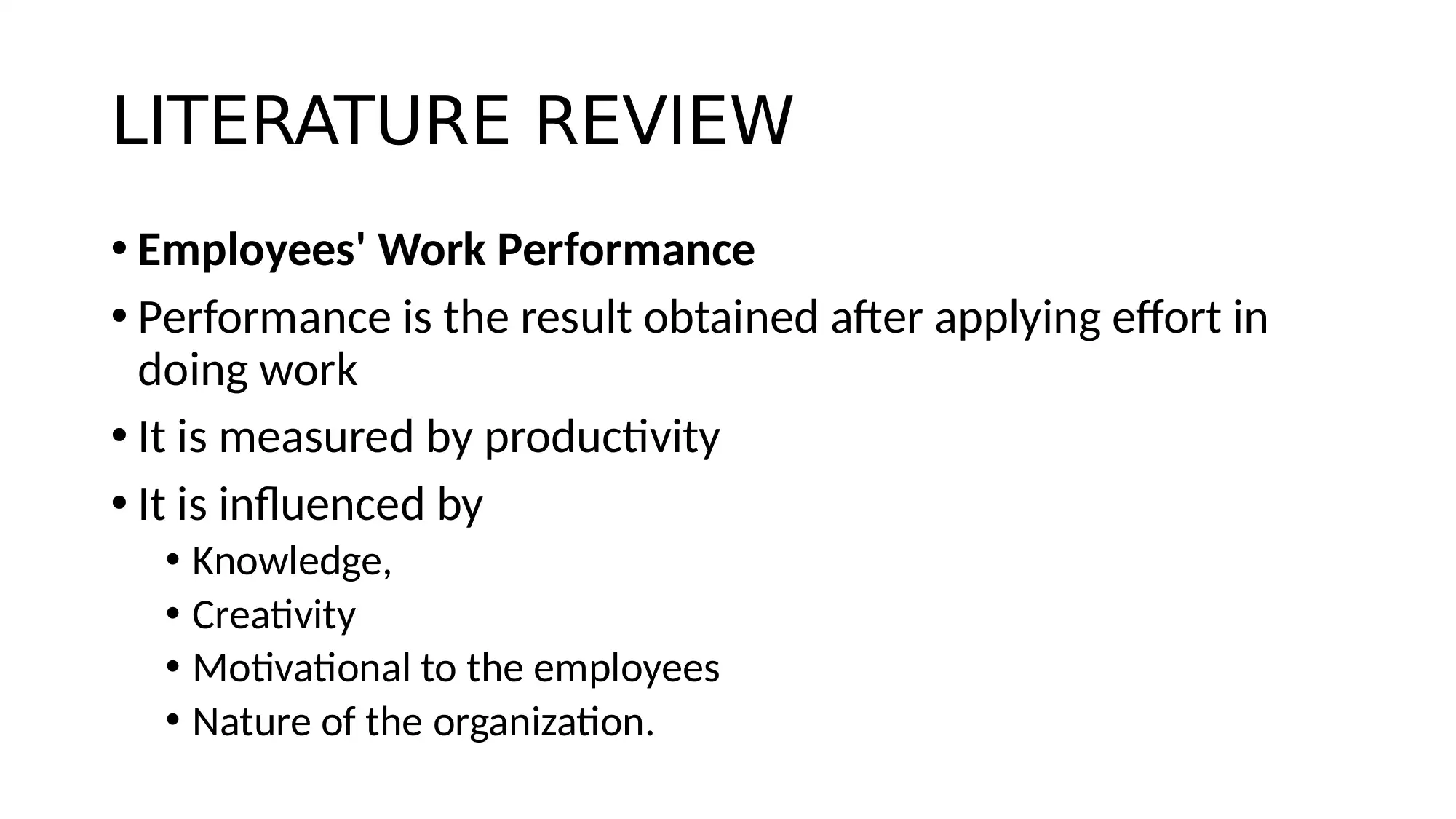
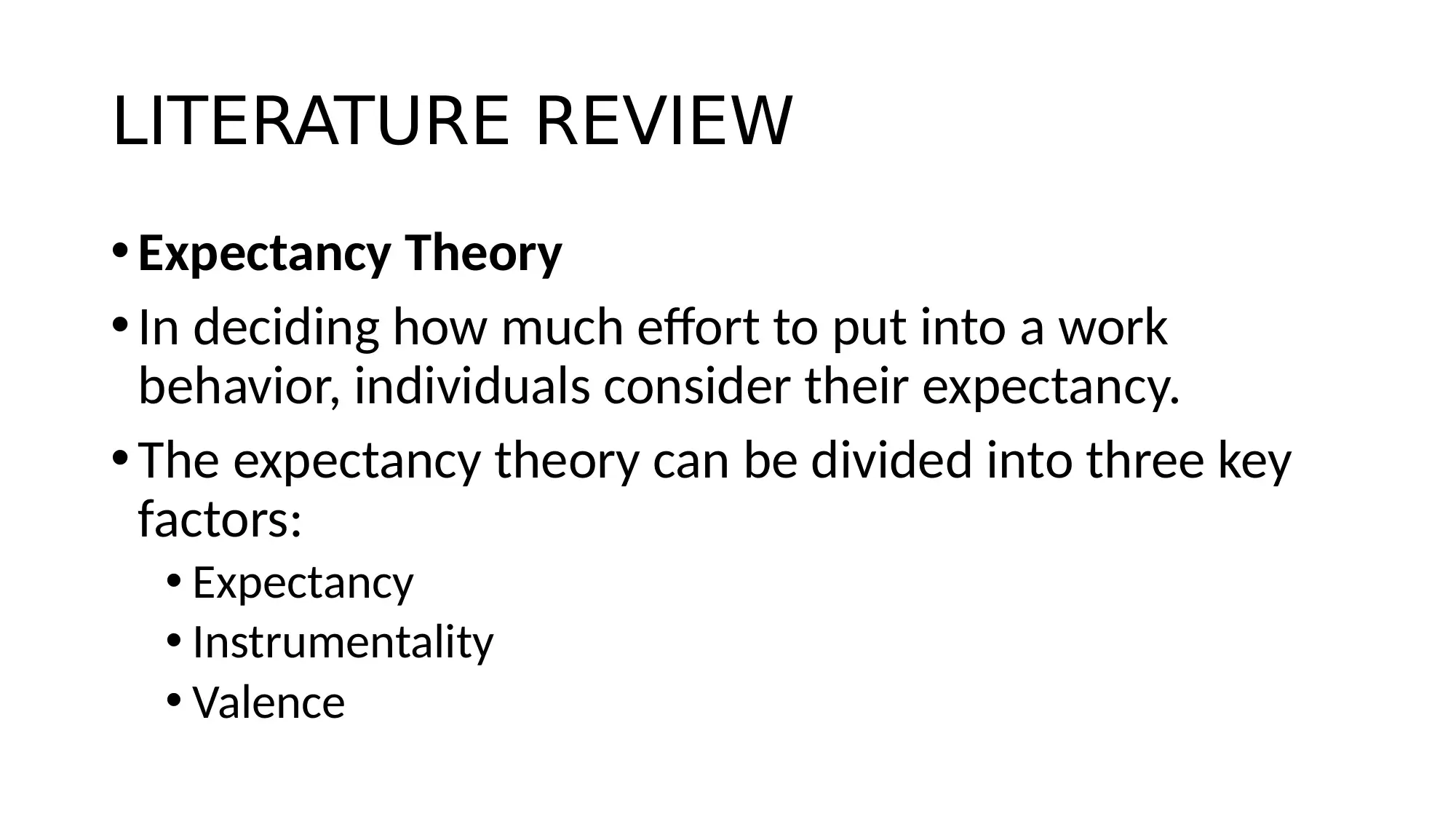
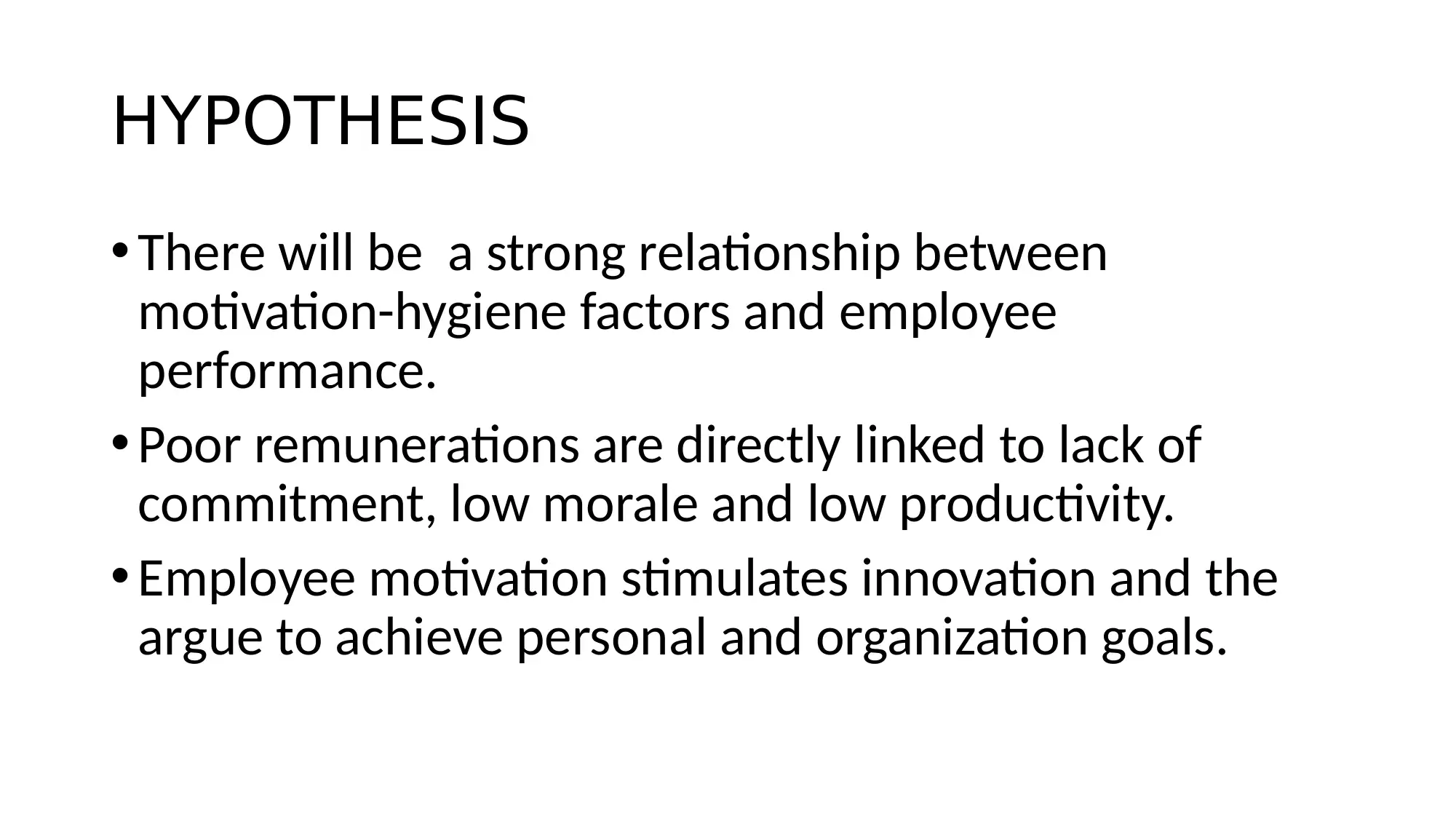
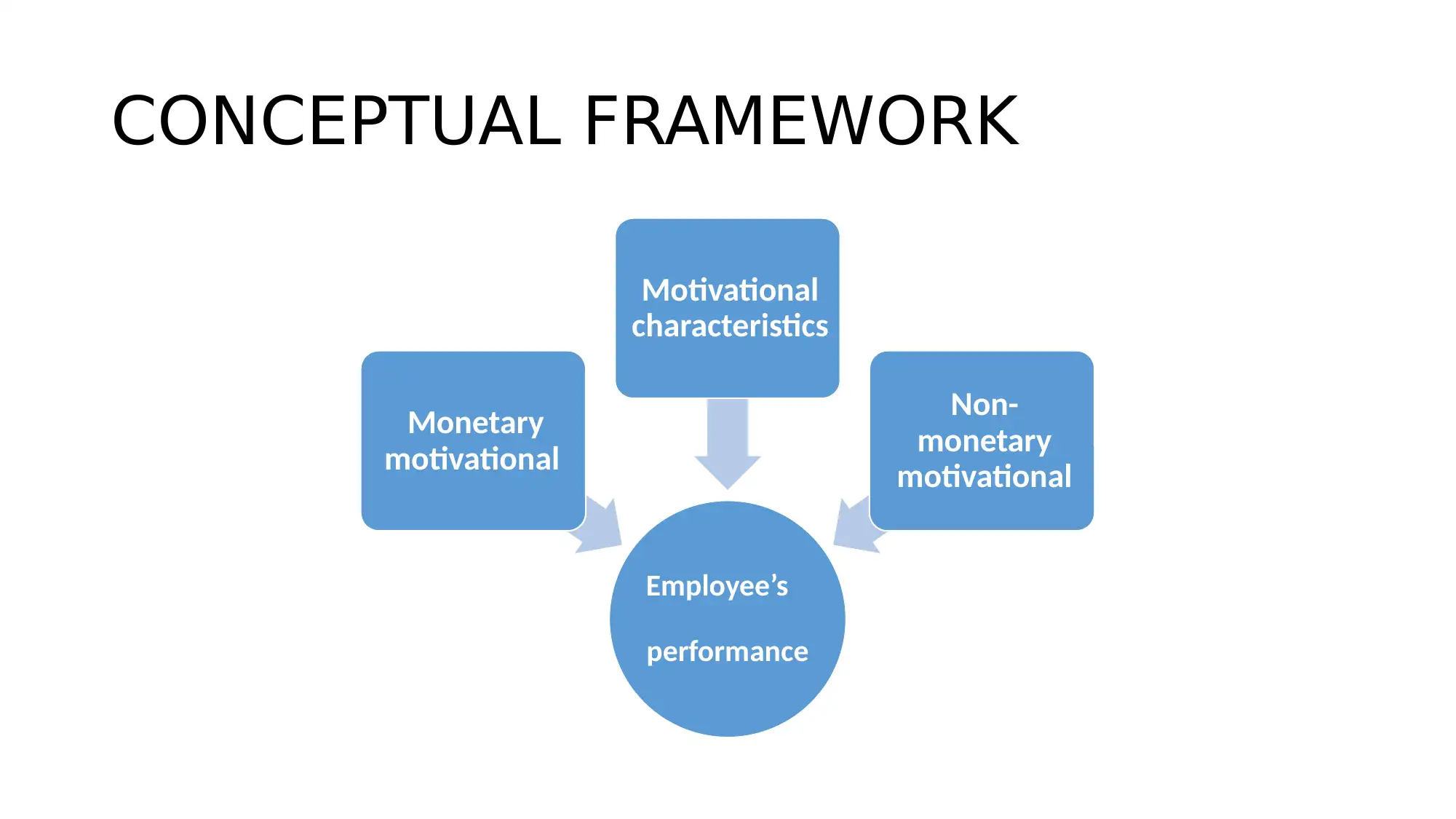
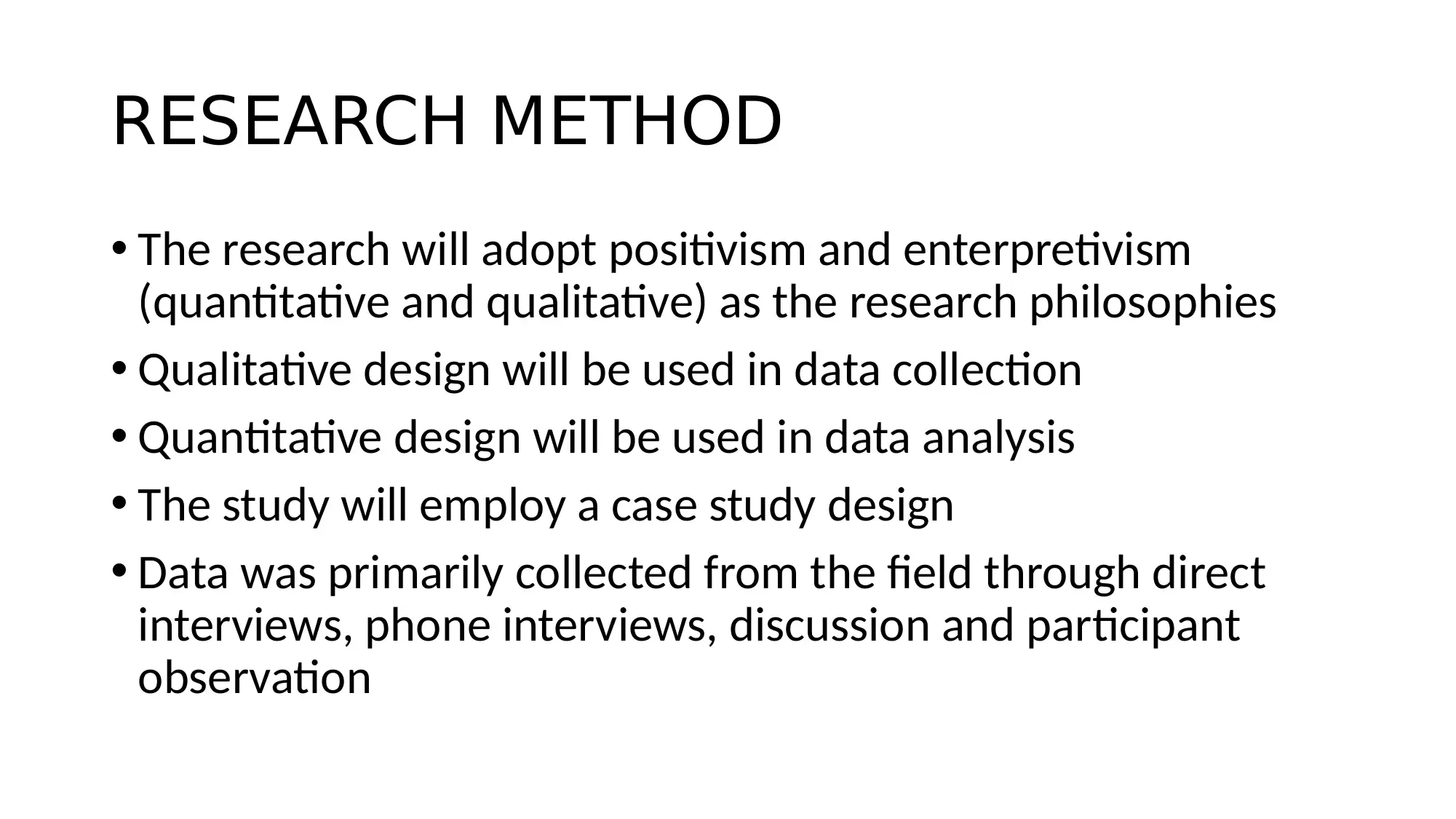






![[object Object]](/_next/static/media/star-bottom.7253800d.svg)